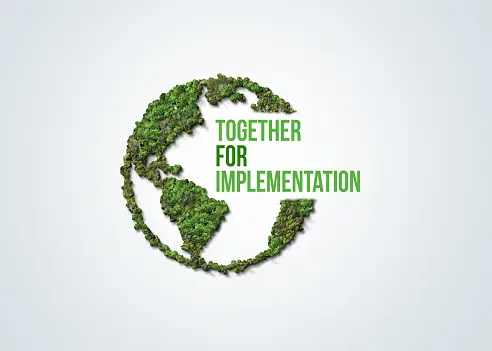A few years ago the CSO role was considered a luxury for large companies able to afford the services of an expert in ES&G. The CSOs job was to provide useful cover for businesses facing a ‘fashionable’ rise in stakeholder demand for sustainable action and transparency, while the business got on with the important stuff like making money. The view was that this trend would die down and the role would be absorbed into a Compliance/IR function.
This has not happened.
What has actually happened?
Businesses have instead become increasingly dependent on the CSO, recognising the value this role delivers through education, stewardship, risk management and mitigation, credibility, branding, and at the operating level…efficiency gains and revenue opportunities.
Instead of the role being absorbed into more traditional departments, it has expanded to incorporate elements of those departments for itself.
While the broader management team remain the stewards of financial capital, the CSO has become the steward for natural and human capital.
Not shrinking – spreading:
The CSO function has become so important to the effective governance of any business that it is being rapidly incorporated into the arsenal of smaller companies. The latest Disruption House ESG Surveys show an increasing number of private companies (with fewer than 200 employees on average) either have a designated (but not necessarily dedicated) manager responsible for ESG oversight, and have or are assembling an ESG committee.

55% of those surveyed have or are assembling some form of ESG oversight committee, while 52% have a manager designated with ESG responsibility. For many this is the logical progression towards appointing a full-time CSO.
How is the CSO role so much bigger today?
A recent panel hosted at the Economist Impact Sustainability Week provided some insights into the reasons for such rapid promotion, giving the officer a firm seat at the senior management table. The panel included CSOs from such diverse companies as Pernod Ricard, Philips, Fairtrade and Harvest London and the collective intelligence shared helps to explain why the CSO is helping to shape business today.
- More of it and more complex:
The CSO role has graduated from handling basic ESG activity and communications, to covering an expansive and evolving agenda of E, S & G principals, guidelines, regulations and disclosure options that require constant vigilance. For example Environmental challenges once confined to calculating GhG emissions have since ballooned into analysing the overall business impact on the natural and built environment using increasingly complex biodiversity disclosures and datapoints from TCFD (Climate), to TNFD (Natural) and now to TSF (covering Social factors).
- Networks are needed:
As the industry expands, so does the need for information gathering from multiple sources. Inter-operational dependencies require good co-ordination and communication internally. Building the ESG information support network saves time and improves data quality. It also reduces risks of mis-reporting.
- Horizon scanning:
The CSO is well suited to plan for the long term, while the business end focuses on the short to medium term. The ESG time horizon is built around the transition to slowing the rate of environmental deterioration, which is mapped out over decades. Businesses have to embed effective resilience into their model and strategies to account for this, making the CSO a long-range warning system.
- Learning on the job:
The best managers of ESG action and fulfilment are the workforce, and continuous education will deliver a collaborative, creative and responsive medium to work with. An informed workforce reduces the temptation to create a compliance culture out of ESG, and helps to keep management accountable for ESG action or inaction. Achieving this requires the CSO to manage that ESG knowledge-base and to make sure the content is always business relevant and informative.
- Managing the narrative:
Corporate claims of ESG excellence were once works of creative fiction. Fantastic sustainable statements, promises and goals were published with impunity. The tone today is much more literal and fact-based, which requires careful monitoring and wording if used to promote the business ESG credentials:
- Stakeholders and customers want data, track records, metrics and Transition plans.
- They want to see the company’s alignment with financial materiality, corporate values, the regulated frameworks (if applicable) and other relevant guiding principles.
- They want this to be presented in a comprehensive report that is proportionate to the size and complexity of the business.
The CSO has to navigate between demonstrating positive developments while avoiding the greenwash trap.
- No business is an island:
Although ESG can provide competitive advantages for businesses, it is recognised as a shared problem requiring urgent and sustained action from multiple players as we collectively fall behind on targets and goals. Policy makers, regulators and advisers are more vocal about ESG collaboration today, and are facilitating pathways for joint action and working together to achieve common goals in the interests of the planet.
These networks are being built by CSOs, within the constraints of business risks around competition law. Guidelines are being published to support B2B collaboration for example the CMA’s (Competition Markets Authority) Green Agreements Guide, published late last year to promote ‘legitimate collaboration between businesses’
Not always an option:
For many companies, recruiting a full time CSO is not an option, but they increasingly recognise the value that the role can generate for the business. They want what a CSO can do, without the headcount. The Disruption House helps businesses with this conundrum through a managed CSO service, giving them time to explore the benefits before perhaps taking the leap, to understand what the role entails and delivers, and provide the tools for engagement and incorporation without the hiring headache.
Speak with one of the team today.
https://thedisruptionhouse.com/


